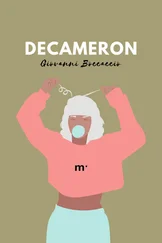“I’m sure that circumstances were different for her.”
Ann nodded. “But I can’t think of any circumstances in which Momma would have walked away from one of her children.” Ann picked up the knife. She got up from the table and carried it to the sink. She placed it carefully into the basin of the sink.
“When I finally found my way home, the baby was crying. Goldie Larson gave me a look. She didn’t want to give Stevie up to me. Ten, fifteen minutes later Vester walked in with Dack Junior. I couldn’t bring myself to look at him — the shame of what I had done.”
*
The two men, both hungry, were coming home now. There would be ham sandwiches and coffee waiting for them. There would be talk of Monica staying on for a few weeks. Monica’s husband Wheaton would be okay with that. These things were temporal, he had heard. These things eventually worked themselves out. But it was good to have a woman there.
“I didn’t know how to help her,” said Vester to his son-in-law as they tramped across a thick, overgrown field.
“Would Dack have known what to do?” asked Wheaton.
“Who knows? Maybe not.” The two men walked on in silence. After a while, Vester said, “A quarter mile in that direction is the lake where I caught that giant muskellunge I was telling you about. I noticed the rod in your car. We’ll go fishing tomorrow — give the girls some more time to themselves.”
Wheaton nodded. Then he said, “The female muskellunge remains near her eggs after she spawns. But only for a short while. Then she goes. She swims away. This is the way it is with the muskellunge.”
“Makes you wonder why,” said Vester, wisps of smoke curling about his head. “A real puzzlement.”
Back in the kitchen the knife lay in the sink. Ann tried not to look at it.
Someone called him the Angel of Death. Which wasn’t fair…or even true. Technically speaking, Angels of Death choose only the doors of those whose lives are coming to an end on which to rap with skeletal knuckles. They do not deliver telegrams to next of kin. This was Billie’s job.
Billie Smaha worked for the Western Union Company. The gangly sixteen-year-old reported each morning to the company’s office in Red Oak, Iowa, the small office right next to the Hotel Johnson. He’d wait on the delivery bench until there was a telegram to go out, and then he’d hop on his bike and deliver it to whomever it was addressed. After school, Billie put in a second shift.
Billie Smaha never had to wait long on the bench, because in 1943 there were a good many telegrams that needed delivering. 1943 was the year that the war came home to this farming community of 5,600 in southwestern Iowa. This was the year that forty-five of its young men, all members of Company M, 168th Infantry Regiment, 34th Infantry Division, along with hundreds of their fellow GIs, were vanquished by the German army in the catastrophic Battle of Kasserine Pass, the first major meeting of American and German forces in the war. There were heavy casualties.
March 6 and 7 of that year were especially grim for the residents of Red Oak. On those two days, Billie needn’t have even brought his bicycle along. The families were assembled for the sake of convenience at the hotel next door. Upon its long portico, a solemn vigil was held. One by one the telegrams arrived, each new telegram nearly identical to the last: “ The Secretary of War desires me to express his deep regret that your son has been declared missing in action .”
“Missing in action. What exactly does that mean?” asked one of the anxious mothers.
“It means what it says,” replied her equally worried husband. “That they don’t know yet just what’s happened to him.”
How could that be a good thing?
Yet it actually was a good thing. Two months later word came that most of members of Company M had, in fact, survived the battle. They had been captured by the Germans and were now being held as prisoners of war.
They were still alive.
The war raged on. Billie rode his bike all over Red Oak in service to the Western Union Company.
He stopped wearing his Western Union cap. He did this in an attempt to soften the looks of apprehension that registered with those who observed his approach. The looks were hard for Billie to bear. Fewer telegrams came to Red Oak in those days in the innocuous form of congratulations or birthday greetings or baby announcements. They were replaced by the little yellow envelopes which bore the three stars that every home-front wife and parent had reason to fear.
Billie was not the Angel of Death, but with him came news of a life cut short, a life mislaid, or a life crippled on some foreign battlefield by the vicious instruments of war.
I will not say that the citizens of Red Oak, who had already tasted too much the bitterness of military conflict during the Civil War and the First World War, hated Billie. How can one hate a boy who is only doing his job — a job that few of us would wish to do? Yet Billie’s sudden presence upon a porch or portico; his knock upon a door after all had sat down to supper; or his unbidden appearance early in the morning when the father had already left for work and the mother had begun to wash the breakfast dishes — it was never a welcome occurrence. It was never without pain, a pain that Billie could not help but feel.
Mrs. Harold Simpson’s face turned white when saw that it was Billie ringing her bell. She had the envelope half-open before Billie could say those few words with which he sought to prepare her: “It isn’t good news, Mrs. Simpson.”
Of course it wasn’t good news. Because it was Billie who delivered it. It was Billie Smaha of the Western Union Company who had rung her bell.
Billie watched as the woman’s two young children crept with cautious curiosity into the room. “Your daddy is dead,” Mrs. Simpson said softly to them. Only this.
“Is there anything I can do?” asked Billie. The sincere request was often made, but seldom did it elicit an answer in the affirmative. What, in truth, could Billie do? He was the messenger. He had delivered his message. He had done his job.
Mrs. Simpson shook her head. She continued to shake her head just as some of those who mourn will rock back and forth, the grief made palpable in the throbbing motion.
No one shut his door against the boy. All met his or her own darkest fears bravely, with painful resignation.
There were over one hundred telegrams in all. So many doors to be knocked upon, so many doorbells to be rung. Sometimes the recipients of the telegrams weren’t home. Billie had to go and look for them.
He tracked down gray-haired Martin Jentoft at the Burlington Station. Martin was an engineer on the Hamburg-Red Oak run. His boy Tom was dead, the yellow piece of paper said. The young man was killed just off the Gilbert Islands.
No one was home at the Doggetts’ house on Eastern Avenue, either. Billie went instead to the Red Oak Creamery, where he was told Mrs. Doggett could be found doing her marketing. Mrs. Doggett’s son, Clair, had died in the Battle for Cassino in Italy. She read the wire that Billie had given her, read it without emotion and then set it down. “Clair is with his God,” she said evenly. Like Billie, Clair had been a delivery boy. Instead of telegrams, he had delivered newspapers — issues of the Red Oak Express .
Billie knew Clair. He knew his story. He knew many of their stories. Clair had wanted to be a football player, but he had a small build. Billie flashed on the night the high school football coach had put him in as a substitute. Clair had run the ball for sixty yards before being tackled, and tackled hard. Clair had broken his leg, but he’d gotten his moment of glory. Another moment of glory — his last — had come several years later and many miles away.
Читать дальше












